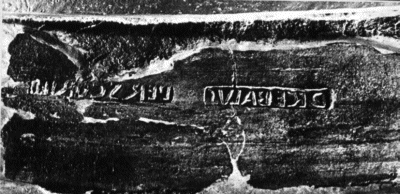
Am vazut recent columna lui Traian. Poate ar trebui spus ca ea e parte din forumul lui Traian, palatul unde acest imparat (poate cel mai important) roman isi facea meetingurile cand nu era plecat cu treaba.
Razboaiele dacice au fost campanii militare de foarte mare anvergura, probabil comparabile (evident, relativ vorbind) cu ce fac acum americanii in irak. Cheltuielile militare vor fi fost uriase, si ele nu puteau fi angajate fara sprijinul Senatului, asa ca Traian a fost obsedat de relatia sa cu cea mai importanta institutie romana. Pentru ca Traian a livrat sistematic on his promises, Senatul i'a spus "optimus" (cel mai tare din parcare).
Luptele cu daco-geto/scitii au fost grele, si victoriile promovate cu mare pompa.
Mausoleul de la Adamclisi, din Dobrogea (mergeti neaparat sa'l vedeti, e emotionant!) de pilda, e o marturie a importantei acestor victorii. Scitia Minor (Dobrogea de astazi) era initial populata de un mix daco/tracic (scitic), celtic, grec si ulterior roman.
Am cumparat si citit mai multe carti, de la libraria forumului lui Traian, care descriu in detaliu columna. Sunt multe lucruri de spus, foarte interesante. O poveste: dupa primul razboi dacic, terminat la oha, romanii au studiat (ce sistematici erau oamenii astia!) cauzele prime ale pierderilor grele pe care le suferisera. S'a vazut ca una dintre probleme era aceea ca luptatorii daci despicau, cu sabiile lor scurte si groase facute dintr'un aliaj special, teasta romanilor cu o lovitura scurta in moalele capului. Asta era o tehnica specifica dacilor, asa ca inginerii romani au gasit o solutie specifica: pe castile soldatilor lor au instalat un sistem de parghii (mici bare de otel curbate) care preluau tensiunea si o disipau pe partile laterala ale capului. Efectul loviturii ucigatoare era, astfel, minimal. Asta a fost considerata o inovatie cruciala in al doilea razboi dacic.
Dacicus Maximus i s'a spus lui Traian dupa cucerirea Daciei. Dupa cum se stie, el a (re)populat Dacia (casapita dupa razboaie) cu settlersi neofiti de prin alte regiuni nou-curerite, chestia care a dus la formarea unei populatii bizare care s'a transformat, ulterior, in ciudatenia de popor roman. Stim ca a luat si multi prizonieri daci pe care i'a plimbat in lanturi in fata Senatului Roman, asa cum facea de fiecare data dupa un razboi castigat. Pe cei mai solizi i'a transformat in gladiatori ca sa faca deliciul multimilor, pe cei ramasi i'a vandut ca sclavi, cel mai probabil.
Daco-getii, neam tracic, erau o populatie veche de razboinici. Intre daci, in special, si celti (intrati in Europa prin Scitia Minor - Dobrogea de azi - si migrati apoi in vestul europei) au existat relatii economice stranse. Uitati
aici cateva frumoase elemente de cultura La Tene (si vedeti, de pilda, la numarul 4, monede gasite pe teritoriul Romaniei).
Referitor la aporia privind impactul dacic in cultura/civilizatia romana, e important e de inteles ca tracii sunt considerati popor indo-european, iar etruscii (inaintasii italienilor) sunt considerati non-indo-european. Cine viziteaza Roma si mai cumpara o carte in italiana (se intelege) poate sa intre in detalii (absolut fascinante). In orice caz, acesti etrusci erau, din cate se documenteaza in prezent, un neam destept, inventatorii drumurilor pavate, apeductelor, sistemelor de canalizare care se mai vad si acum in tot nordul Italiei.
 WASHINGTON - Congress on Friday passed sweeping highway and mass transit legislation that will send nearly $300 billion to the states to build and fix roads, create thousands of new jobs and — lawmakers hope — save lives and cut hours wasted in traffic jams.
WASHINGTON - Congress on Friday passed sweeping highway and mass transit legislation that will send nearly $300 billion to the states to build and fix roads, create thousands of new jobs and — lawmakers hope — save lives and cut hours wasted in traffic jams.



